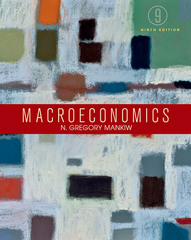Homework (Ch 21) Dmitri is a post doctoral fellow who teaches particle physics at a university where he earns a annual salary of $160,000. He intends to take the next year off to focus on writing a new undergraduate physic extbook, so he will not earn any income next year. He is currently deciding how much of this year's salary he should save for next year. Assume that there are no tax implica iated with the decision, and ignore what happens after next year. Therefore, next year Dmitri will atever he saves this year plus interest, and he is not concerned with the future beyond next year. The following graph shows Dmitri's preferences Suppose initially Dmitri cannot earn interest on the money he saves. Use the green line (triangle symbol) to plot Dmitri's budget constraint ( BCi ) on the following graph. Then use the black point (plus symbol) to show his optimum consumption bundle. Note: Dashed drop lines will automatically extend to both axes. 240 A BC. (0% Interest) Initial Optimum (09% Interest) CON SUMPTION NEXT YEAR ( Thousands of dollars) BC. (50% Interest) New Optimum (509% Interest) 20 40 60 60 100 120 140 160 180 200 220 240 CONSUMPTION THIS YEAR (Thousands of dollars) Now suppose Dmitri can earn 50% real interest on any money he saves. Use the blue line (circle symbol) to plot his new budget constraint (BCs) on the previous graph. Then use the grey point (star symbol) to plot his optimum consumption bundle at this interest rate. (Hint: To plot BCs, think about how much money Dmitri would have next year if he saved his entire income this year.) Using the previous graph, complete the following table by indicating how much Dmitri should sav he cannot earn any interest on his savings and when he can earn 50% interest on his savings. Interest Rate Amount Dmitri Saves (Percent) (Dollars) 50 Which of the following statements is a good description of the results of this exercise, as well as its implications for broader consumer behavior? All consumers, including Dmitri, save less money when interest rates are high, because they don't need to save as much money to have the same future income. In this case, Dmitri saves more money when interest rates are high. However, with different preferences might save less money when interest rates are high. All consumers, including Dmitri, save more money when interest rates are high, bec y get a higher return on that investment. In this case, Dmitri saves less money when interest rates are high. However, consumers with different preferences might save more money when interest rates are high







